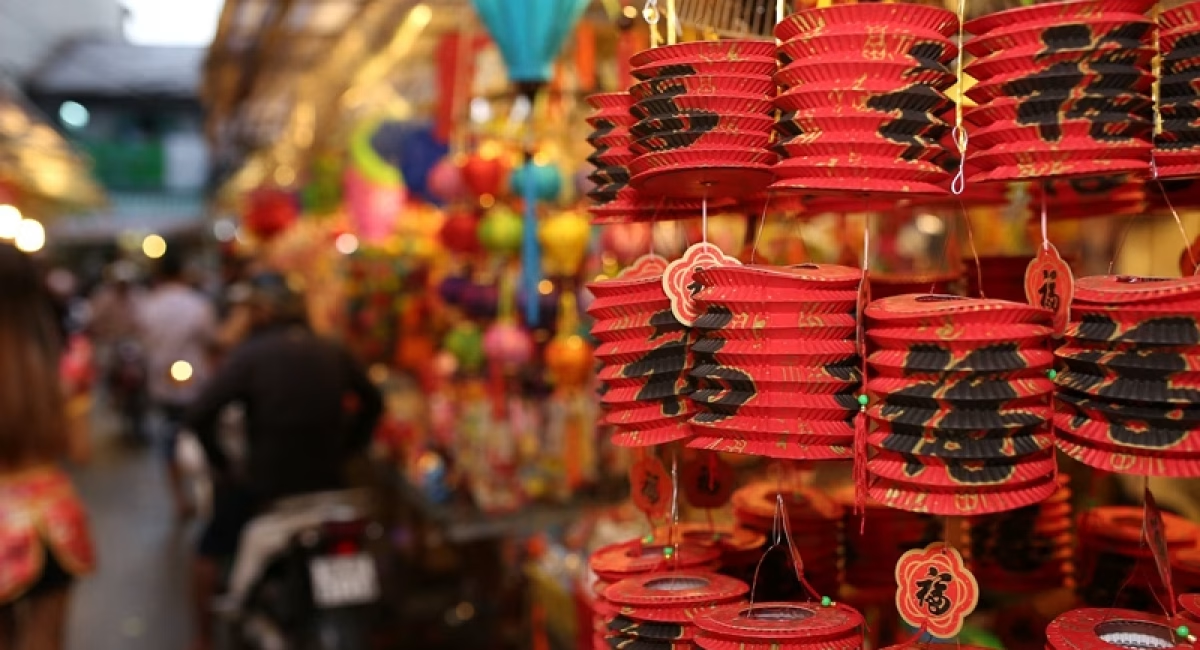Mid-Autumn Festival: Mooncakes, lanterns and so much more
This year, the Mid-Autumn Festival falls on September 17th, a cherished celebration across East and Southeast Asia. It’s a time for families to come together, light lanterns, and admire the year’s fullest moon. Discover more and start planning a Globe Aware volunteer vacation in Vietnam to join the festivities next year!
Mid-Autumn Festival: Mooncakes, lanterns and so much more
By Maggie Hiufu Wong
CNN
September 16, 2024
Members of a fire dragon dance team spin balls of joss sticks in Hong Kong.
It’s time to hang a lantern, share a mooncake and peel a pomelo – Mid-Autumn Festival is here.
Falling on the 15th day of the eighth lunar month, it’s celebrated primarily in East and Southeast Asia and is a time for families to gather to sample autumn harvests, light lanterns and admire what’s believed to be the fullest moon of the year.
In 2024, the Mid-Autumn Festival, or the Moon Festival, falls on September 17. Here’s a bit of background and a few tips on how to join this massive full moon party.
What is the Mid-Autumn Festival?
Mid-Autumn Festival became an official celebration in China during the Tang Dynasty (618-907 CE) but there isn’t one single answer to the question of when and how the annual event began.
Many believe the fete was first mentioned in the “Book of Rites,” a Confucius classic on bureaucracy and rituals written more than 2,400 years ago.
It was described as a day for emperors to celebrate the year’s harvest by giving offerings to the moon and hosting a great feast.
Today, the Mid-Autumn Festival is an incredibly important family gathering – it’s when “people and the moon reunite to form a full circle,” as an old saying goes.
Chang’e: The moon festival goddess
Like many cultural celebrations, the Mid-Autumn Festival is shrouded in myth. One of the most beloved – and tragic – pieces of folklore tells the story of how a woman named Chang’e became the moon goddess.
According to the legend, after mythological Chinese archer Hou Yi courageously shot down nine surplus suns – leaving only one, in effect protecting the world from being scorched completely – he was given an elixir from heaven as a reward.
Hou Yi’s wife Chang’e drank the elixir while protecting it from a greedy apprentice, but became so light that she floated to the moon.
Missing his wife, Hou Yi prepared a feast every year on the day when the moon was at its fullest, hoping to get a glimpse of his wife’s shadow.
Just how well known is this story? China’s Chang’e lunar modules, part of the country’s ambitious space program, were named in honor of the moon goddess. Meanwhile, Yutu (Jade Rabbit) – China’s moon rover – was named after the legendary rabbit that was sent to accompany Chang’e to the moon.
Mid-Autumn Festival customs and traditions
When it comes to celebrating the festival, customs vary throughout Asia.
The Mid-Autumn Festival is considered “children’s day” in Vietnam and celebrations include paper lantern fairs and lion dance parades. Meanwhile, in southern China, most people will light a lantern and eat autumn fruits such as pomelo and starfruit.
Some villages in Hong Kong still preserve the tradition of fire dragon dancing through a narrow alley.
In South Korea, the mid-Autumn Festival (or Chuseok) is one of the nation’s most important holidays. Celebrated over three days, South Koreans will sweep ancestors’ tombs, wear traditional attire and eat songpyeon, crescent-shaped steamed rice cakes with sweet fillings.
Japanese people, meanwhile, will eat grilled sticky rice balls called tsukimi dango (“moon viewing”) while admiring the astronomical body.
Celebrations can also be found in Asian communities all over the world, from New York City to Vancouver.
All about mooncakes
One of the biggest stars of the Mid-Autumn Festival is the mooncake – it’s as important to festivities as turkey is to Thanksgiving and latkes are to Hanukkah. In most places in China, the calorie-packed pastry is sliced up and shared like a cake between families and friends.
The most well-known kind of mooncake is made of lotus seed paste, salted egg yolk and lard – Cantonese style – which explains why a palm-sized cake can contain about 1,000 calories.
Nuts, red beans and custards are some other popular ingredients.
In recent years, big brands and even public institutions have taken to creating specially designed mooncakes. China’s Shanghai Mental Health Center, for example, shared photos of their mooncakes in 2023 and went viral on social media in China.
Bakery brands have also come up with modern variations – ice cream coated in chocolate, for example – that offer an alternative to those who aren’t fond of traditional mooncakes.


0 Comments